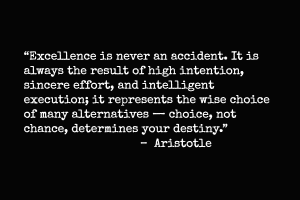Last Friday, I woke up earlier than normal because I still needed to get in my long run for the week. My distance goal that morning was 26 km. Even before I left the house at 4:36 am, I knew something was off. I wasn’t sure what was ‘off’ until I was about five kilometres into the run as the muscles in my legs burned, my hips locked, and I struggled to put one foot in front of the other. At that moment, I knew exactly what was ‘off.’ It was me. I wasn’t committed.
Visualize

Following my training schedule for the upcoming Toronto Waterfront Marathon, Wednesdays or Thursdays are dedicated to long runs (26-37 km). Last week, though, with my day job and dealing with jet lag, everything shifted. When it came time to run Friday morning, I wasn’t prepared mentally.
Five years ago, I wasn’t good at visualization. But two years ago, when I started ramping up my running, I found myself visualizing my long runs (at that point 13 km) the night before and in the morning before heading out the door. I could see the point on the Martin Goodman Trail I had to reach before turning around if I wanted to make the distance. In my head, I figured out where during the run I’d lose energy and the affirmations I’d use to dig deep and keep going. Before I even slipped on my runners, I was committed.
Noncommittal
When I hit the trail last Friday, I wasn’t committed. I hadn’t done any of my pre-run rituals. Hadn’t visualized the route or the challenges (mental and physical) that I’d encounter along the way. Hadn’t developed the mental toughness to push through the pain and doubt to meet my goal. I wasn’t in the game.
I tried to keep going, each step more painful than the last. And even though I kept telling myself I could do it, at the 10 km mark I turned around and headed home, running a total distance of 13.3 km. That was, to me, a failure. Because I hadn’t committed to the run. I hadn’t committed to doing my best.
Committed
 Whether it’s with my running or writing, the way I succeed is by showing up committed to the task at hand. It is my singular focus. If I’m not one hundred percent present, then I become vulnerable to distractions and self-doubt. I end up ‘off my game,’ and my goals either take longer to achieve or fail spectacularly.
Whether it’s with my running or writing, the way I succeed is by showing up committed to the task at hand. It is my singular focus. If I’m not one hundred percent present, then I become vulnerable to distractions and self-doubt. I end up ‘off my game,’ and my goals either take longer to achieve or fail spectacularly.
Aristotle told us, “Excellence is never an accident. It is always the result of high intention, sincere effort, and intelligent execution; it represents the wise choice of many alternatives — choice, not chance, determines your destiny.”
And I agree.
Do you show up committed to your goals and dreams? Do you have any rituals that help you succeed? Click Reply to let me know. I love hearing from you!